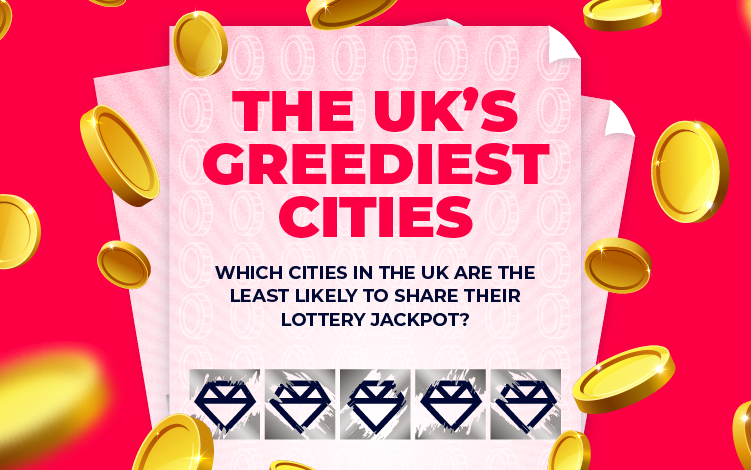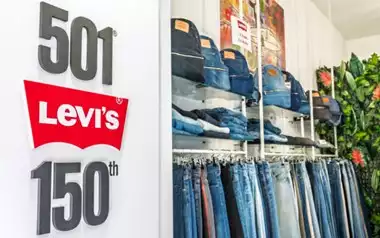With record-breaking lottery jackpots capturing the UK’s attention, we have explored the question: If you won big, would you split the jackpot or keep every last penny?
In this research, we’ve delved deep into the psychology of generosity and greed of Brits, uncovering how different UK cities would handle a life-changing win. We’ve surveyed the nation to determine who’s giving the money away and who’s cashing in.
By breaking down responses by city, gender, and age, the team at Slingo has revealed which UK cities would happily keep all their winnings to themselves and which would share with family and friends.
The Greediest Cities in the UK
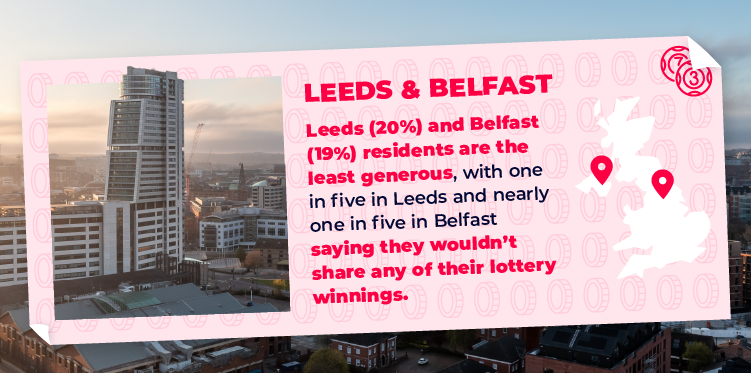
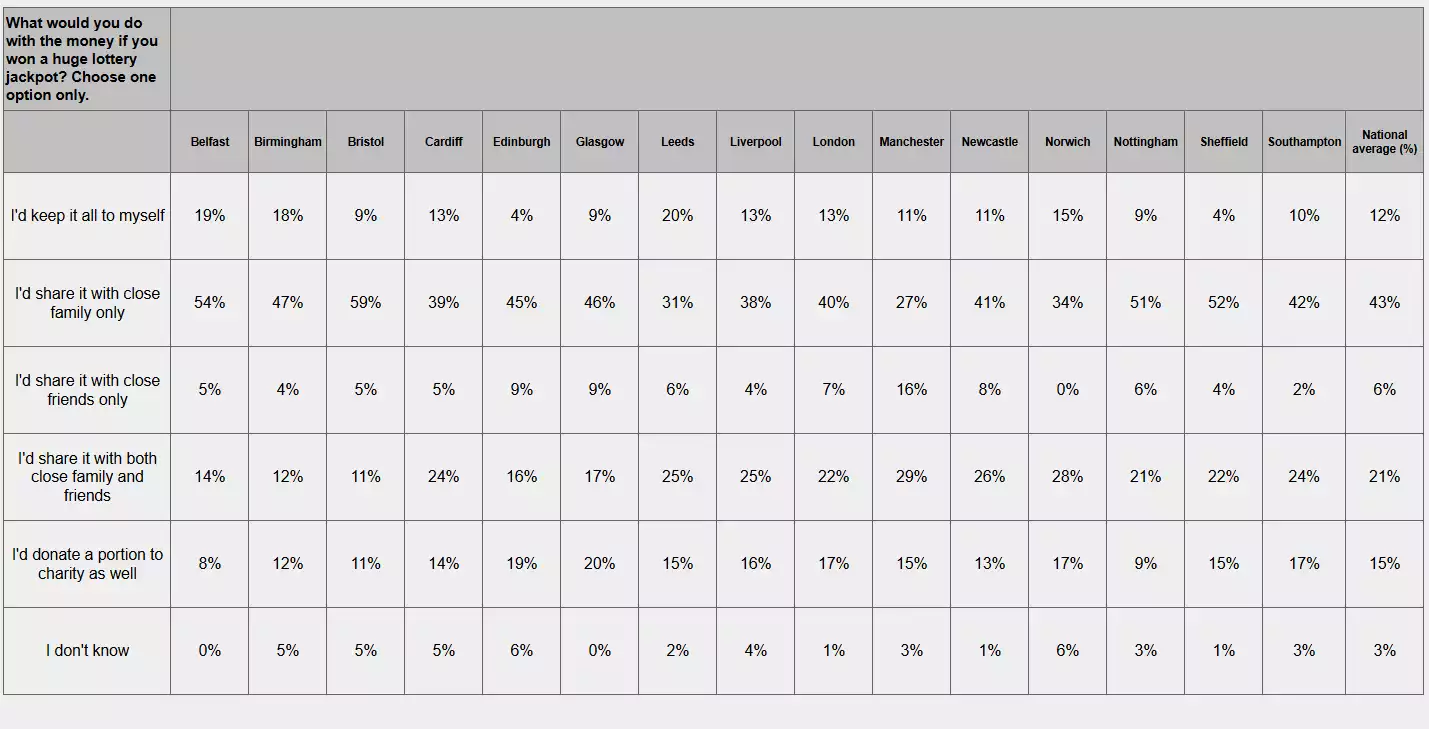
Leeds and Belfast residents aren’t feeling too generous when it comes to striking it rich. According to our survey data, one-fifth of Leeds (20%) and 19% of Belfast-based respondents admitted they wouldn’t share a single penny of their lottery winnings. That’s more than double the percentage in some cities, putting the Yorkshire capital at the top.
Belfast residents are also cautious with their lottery winnings when it comes to donating to charity. Our survey data revealed that only 8% of people in Belfast would donate any portion of a jackpot to charity, the lowest percentage among all 15 major UK cities surveyed. This figure is well below the national average of 15%.
The Most Generous UK Cities
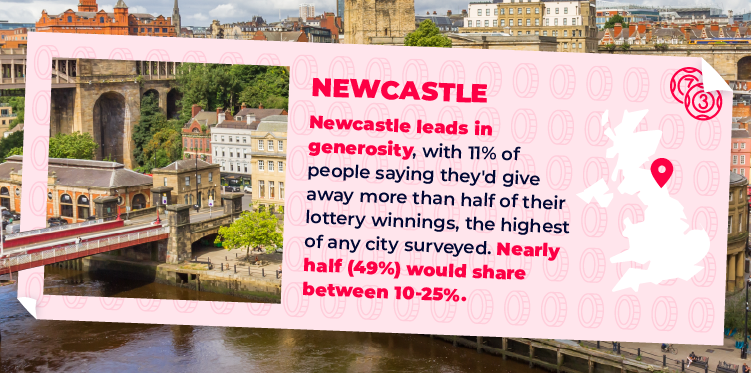
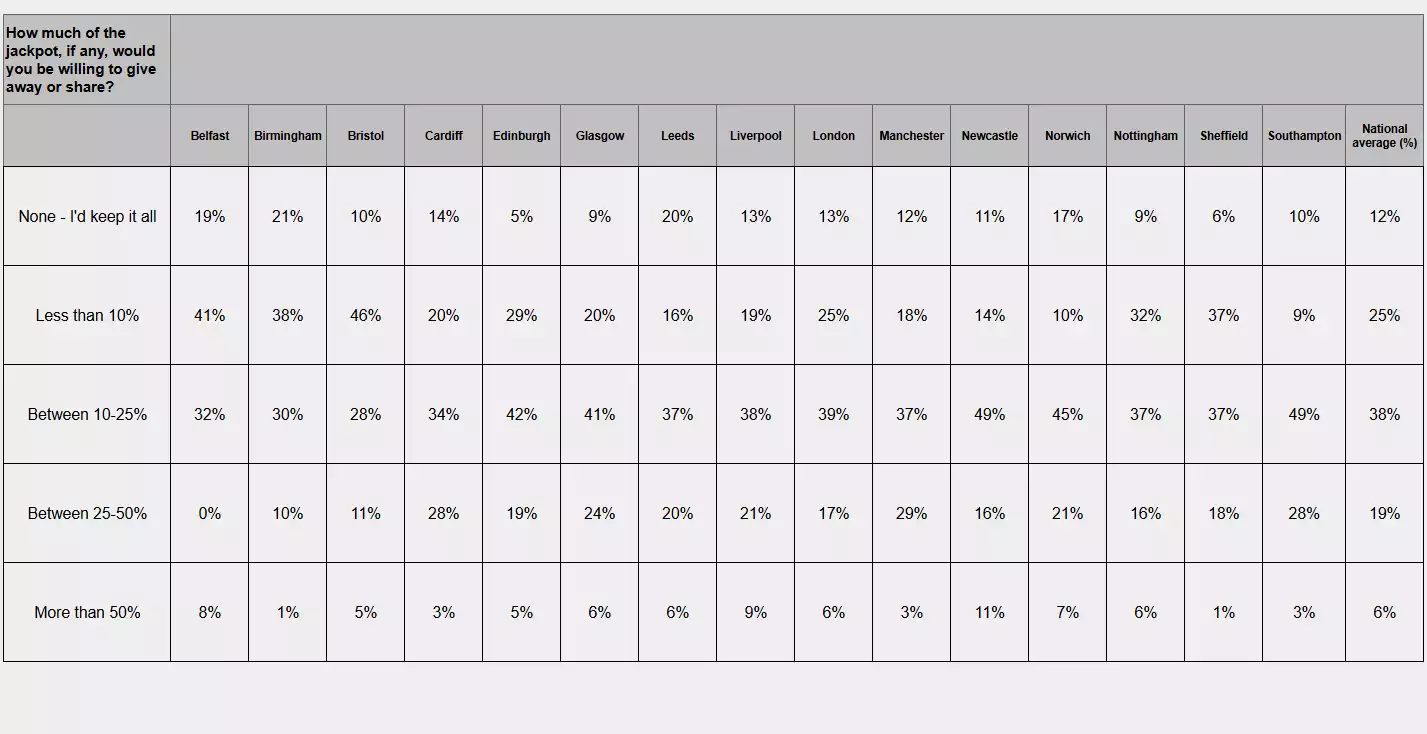
Newcastle would take the crown if generosity were measured by how much of a lottery jackpot you’d share. According to our data, one in nine people (11%) in Newcastle said they’d be willing to give away more than half of their winnings, the highest ratio of any city surveyed.
Nearly half (49%) of those surveyed in Newcastle said they’d be willing to give away between 10 and 25% of their winnings, showing that the city’s spirit of sharing runs deep.
Sheffield and Edinburgh also stood out for their generosity. 94% of respondents in Sheffield and 95% in Edinburgh would be willing to share some of their lottery winnings. This suggests a strong willingness to share or donate winnings in these communities, above the national average of 88%.
The Greediest UK Regions
While generosity levels vary from city to city, a broader look across the UK reveals some striking regional patterns.
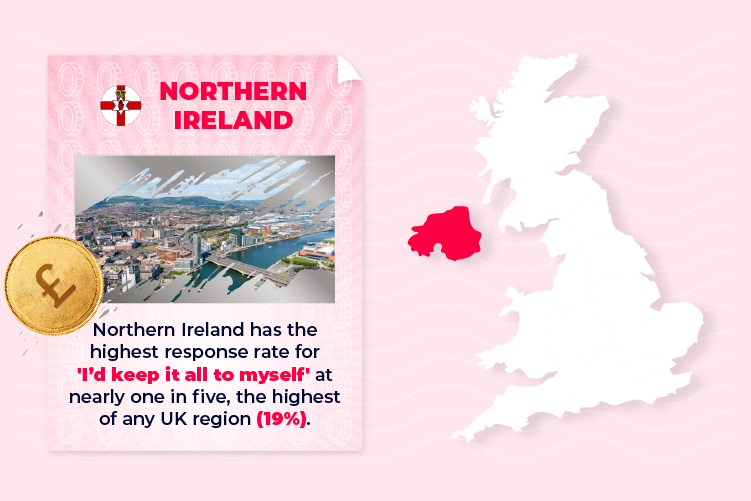
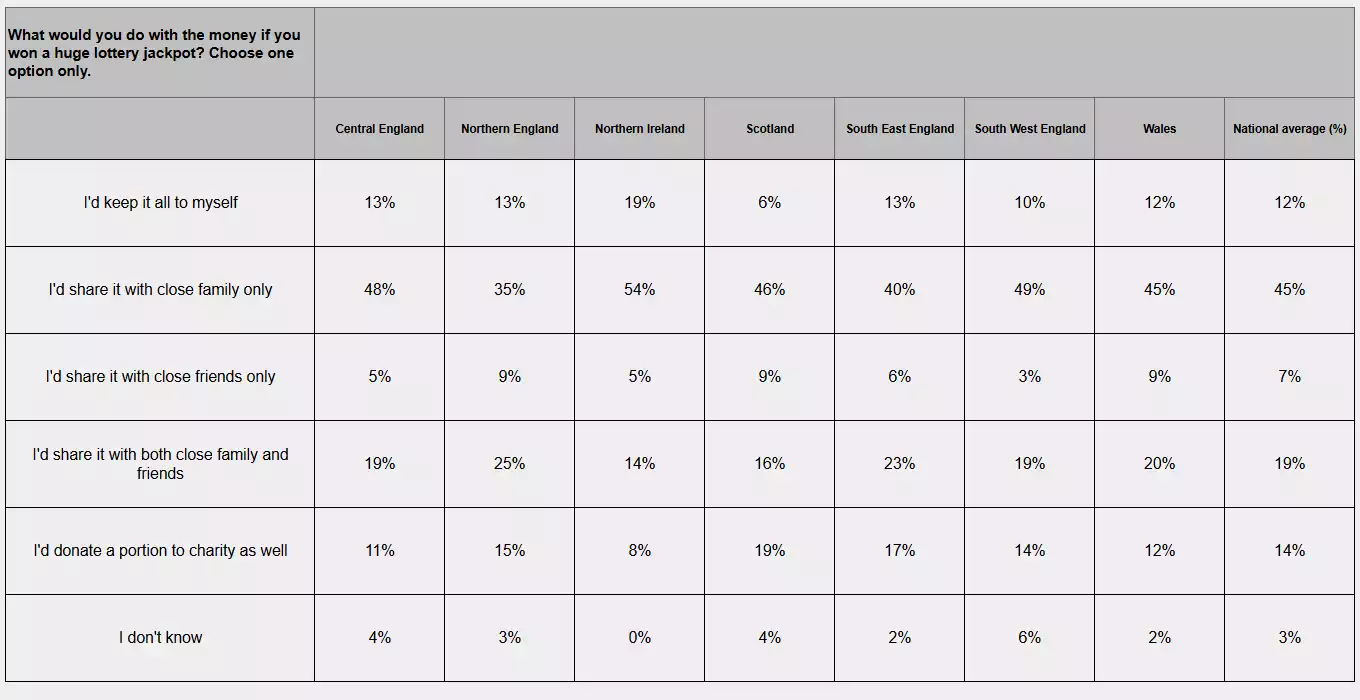
Northern Ireland has the highest response rate (19%) for “I’d keep it all to myself” and “I’d share it with close family only”, at almost one in five, the highest percentages of any region. The area showed intriguing insights into their attitudes towards winning a massive lottery jackpot.
In Northern Ireland, friends get less love, with only 5% of respondents saying they’d share with close friends only. And almost one in six (14%) said they’d share it with both family and friends, a bit lower than the UK average.
The Most Generous UK Regions
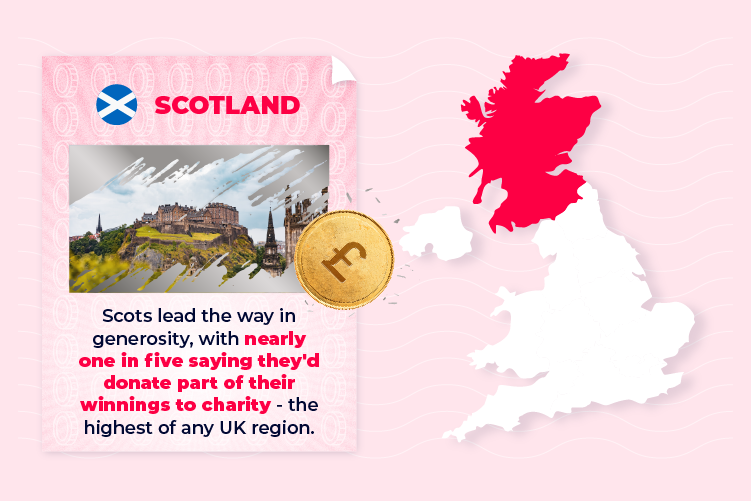

Scots lead the way in their generosity, with almost one in five saying they'd donate part of their winnings to charity, the highest of any region. On top of that, just one in 20 Scots would keep the entire jackpot to themselves, making Scotland the most outward-looking region overall.
Nearly half of respondents (46%) in Scotland say they would share the money with close family only, which aligns with the UK average. But what sets Scotland apart is the low percentage of those who would keep the money to themselves, just 6%, compared to a national average of 12%. Whether it’s community spirit or national pride, generosity is thriving north of the border.
Women in the UK Prioritise Close Kin When Sharing Lottery Winnings
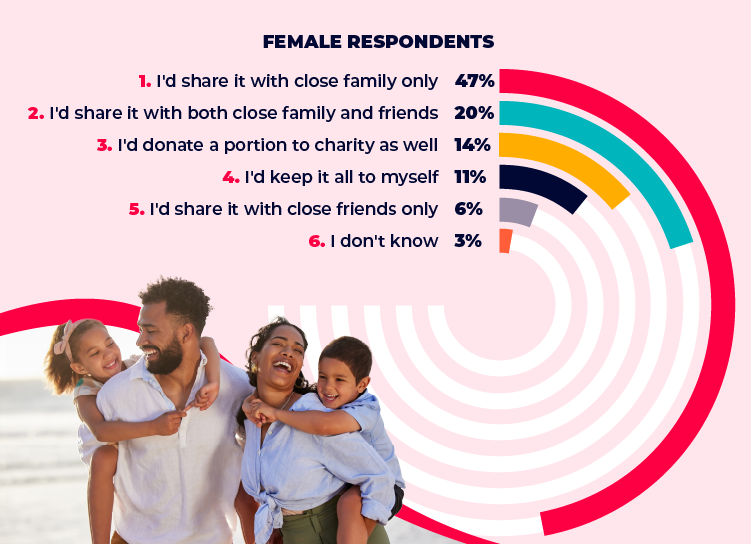
According to the survey, almost half (47%) of female respondents stated they would share their winnings only with close family, making it the most dominant response among any gender group. In comparison, only 33% of males chose this option, and 0% of transgender respondents did so. This shows that women might feel a stronger loyalty or responsibility to their close family when it comes to lottery winnings.
UK Men Lead in Charitable Giving Following Lottery Wins
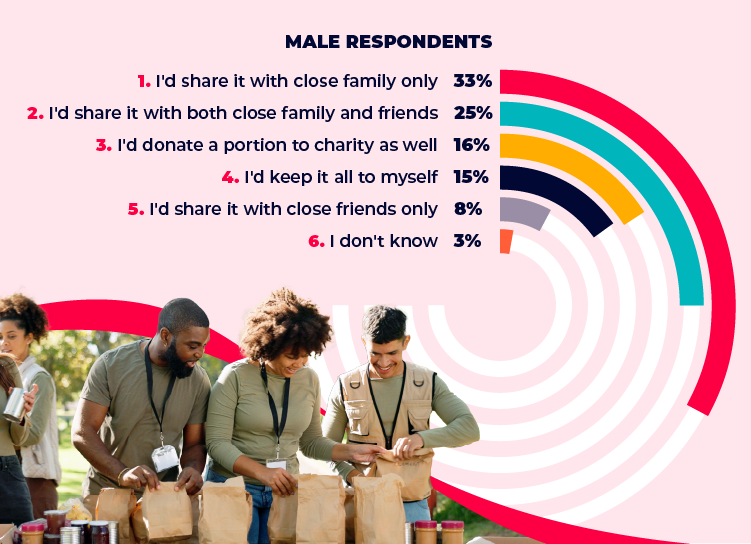
Men are the most likely group to donate a portion of their lottery winnings to charity compared to women and transgender respondents. While the difference between men and women might seem small (a 2% gap), it still places men at the top regarding the likelihood of including charity in their plans.
At the same time, men are also more likely than women to either keep the money to themselves (15% vs just 6% of women) or share it with close friends (8% vs 3%).
Women showed a stronger preference for sharing their winnings with their close family (47%), a significant 14% higher than men. Transgender respondents showed more individualistic or friend-centred responses, with one third selecting “keep it all” and the rest equally split between sharing with friends or family/friends. There was zero mention of family-only sharing or charity giving.
Older Adults in the UK are Least Likely to Keep Lottery Winnings All to Themselves
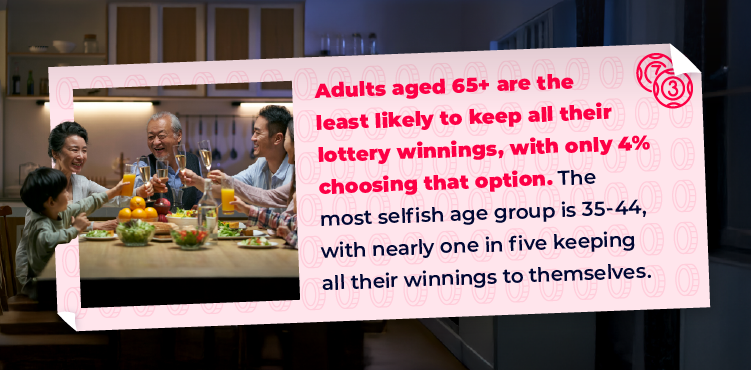
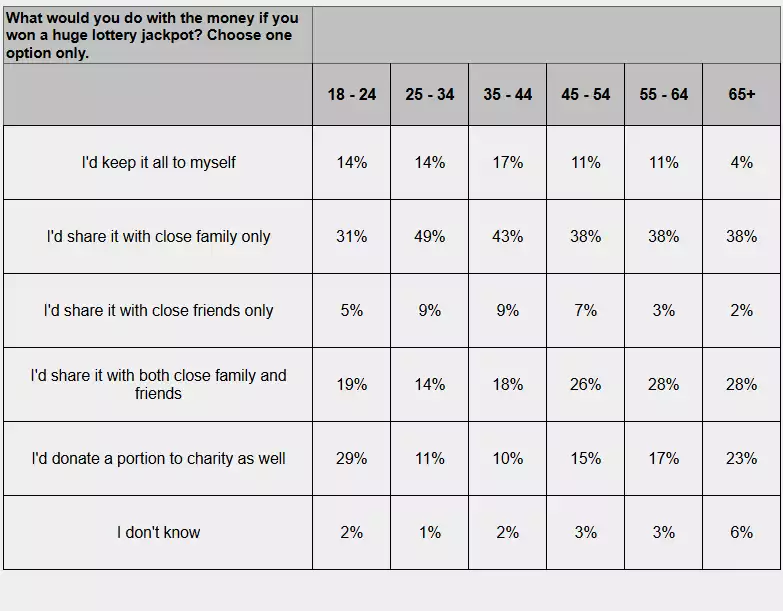
Regarding sudden wealth, age seems to bring a stronger sense of sharing, especially among older adults. Adults aged 65 and older are the least likely to keep all their lottery winnings to themselves, with just 4% selecting that option.
This is a sharp contrast to younger age groups, with 14% of 18 to 24 and 25 to 34-year-olds keeping their winnings to themselves. However, the most selfish age group is 35 to 44-year-olds, with almost one in five people keeping their lottery winnings to themselves.
This data suggests that people may feel more inclined to share their wealth with family, friends, or charitable causes as they age. Almost a quarter of older adults (65+) would donate a portion to charity, second only to the youngest group (18-24) at 29%. They may also be more community-minded, as 28% said they’d share winnings with both family and friends.
Young People in the UK Lead in Charitable Giving After Lottery Wins
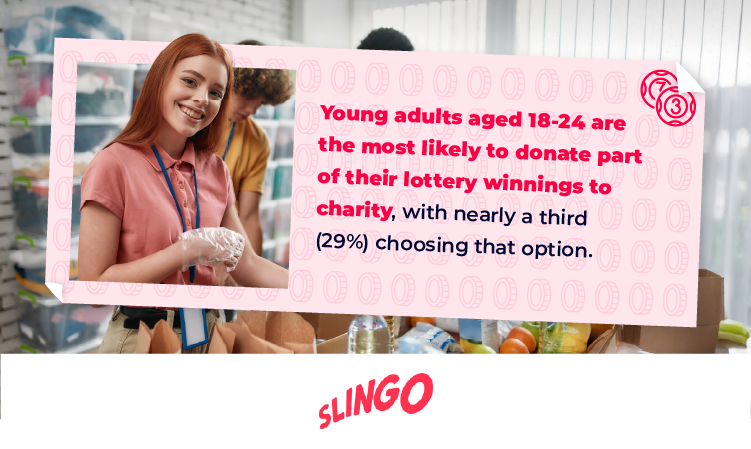
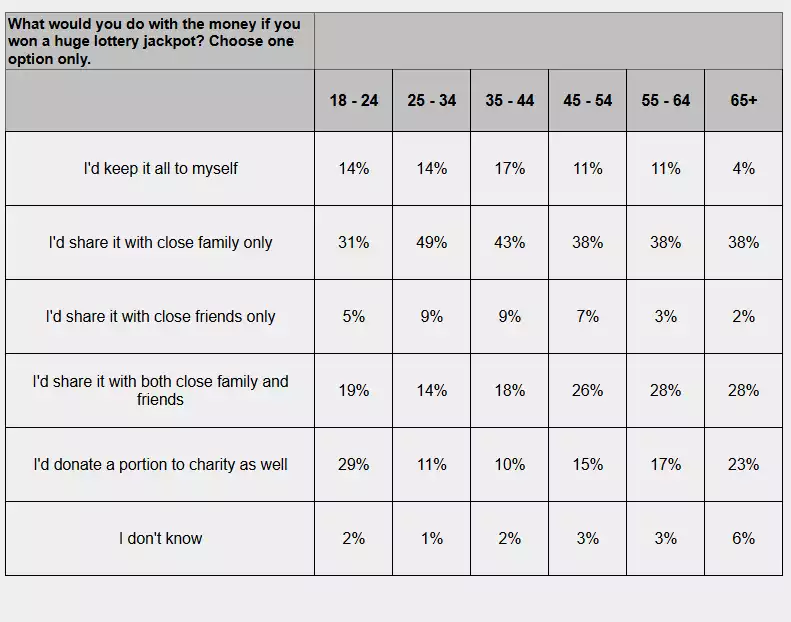
Despite being early in their financial journeys, young adults aged 18-24 are the most likely group to say they’d donate a portion of their winnings to charity, with just under a third (29%) selecting that option. That’s significantly higher than any other age bracket, including those aged 65+.
This might suggest that younger generations are more values-driven, socially conscious, or connected to causes they care about. It‘s also possible that younger people have grown up in an era of social activism and digital fundraising, so they may feel more comfortable including charity in their financial plans.
Methodology
A survey was carried out among 2,000 UK residents, asking the question:
- If you were part of a huge lottery win, would you share the winnings or keep it all for yourself?
- How much of the jackpot, if any, would you be willing to give away or share?
